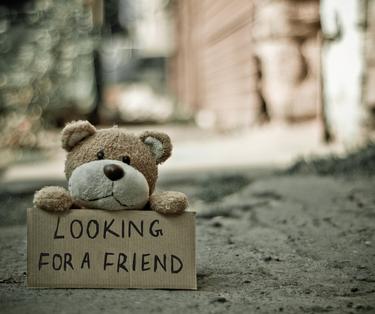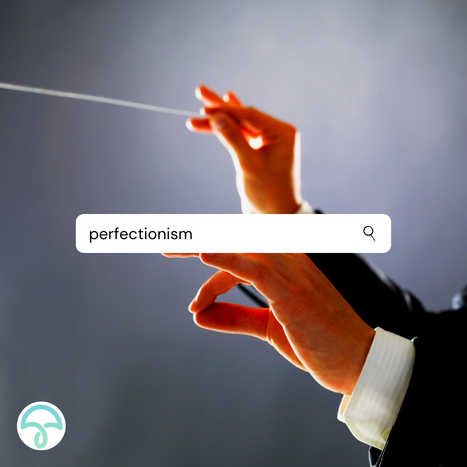How To Overcome Public Speaking Anxiety: 4 Helpful Tips Do you find yourself avoiding opportunities to speak in front of others due to a fear of public speaking? Have you ever passed up the chance to present your work or lead a project because the thought of speaking in front of your colleagues filled you with dread? If you have experienced these scenarios one too many times, then this article is tailored specifically for you.
0 Comments
Panic vs Anxiety Attacks: How Are They Different? Have you ever been in a bustling mall, surrounded by people, when suddenly your heart starts racing, your palms become clammy, and breathing feels like a challenge? But here's the question: is this a panic attack or an anxiety episode? Drawing a clear line between the two can be complex, but fear not – our journey is here to shed light on the distinctions. In this article, we'll not only demystify panic and anxiety but also arm you with essential techniques to navigate these overwhelming moments. So, let's dive into the exploration and learn how to effectively manage these intense experiences. How to Practice Mindfulness at Work: 5 Easy Tips The workplaces can be extremely competitive and stress-provoking environments. Long working hours, strict deadlines, difficult conversations with bosses and managers can be hard sometimes. Also, the amount of information you are bombarded with can increase your anxiety levels and can make you feel overwhelmed and disconnected from the present time. The tricky part of this bad habit is that it can easily turn into a vicious cycle. The moment you start feeling anxious, you disconnect from the present time and start focusing on future tasks or past mistakes at the workplace. In the end, it causes more anxiety, provokes stress and might cause burnout. In the long run, it can affect both your mental and physiological health. So, it is important to deal with your stress level adaptively and decrease anxiety. What can you do about this? This is where mindfulness comes in.
The Stress Cycle: How To Manage Stress The Right Way We have all been through stressful periods in our lives. For example, moving to a new country, changing jobs, or breaking up with a partner. We are all acquainted with the feeling of stress and know a couple of things about how to manage it. The problem is that we have come to believe that once we are done with a stressful experience, that’s it; we are done and do not need to do anything else. This can't be farther from the truth so today we will explore what psychologists know about managing stress the right way. We will discuss what the stress cycle is and why is it so important to complete it. Why Do We Procrastinate? The Real Reasons + How To Stop Have you ever started working on an important project and suddenly found yourself cleaning the house? Just like in a “trance”, you magically stop working on your work project and puff! you are preparing your clothes for your dinner party, but it is only 10.00 in the morning. While you are “focusing” on cleaning the house, preparing your clothes and scrolling on Instagram, you just realised it is already the end of the day and you can’t start working on a new thing because it is important and “needs time”. Sounds familiar?  Fear of failure can be one of the most self-sabotaging, crippling feelings we can experience. But why does it have such a powerful impact on us that it can make us stop chasing our dreams, avoid starting new relationships and be hyper-vigilant all the time? How can we allow fear to exert such control over our lives and, most importantly, how can we overcome this fear?  How many times have you thought that you wish you had more time in your hands so that you can follow your dreams? Or, that you wish your life would be different and you could distribute your time better so you can follow your passion? If you have asked yourself these questions and you have noticed a pattern of regret and "stuckness" coming up interestingly often, there is a high chance that you might be standing in your own way. You might be sabotaging yourself subconsciously with some specific behaviors and actions.  Social media is a paradox. It can get us closer to others, but it can also leave us feeling inadequate and lonely. It can help us develop ourselves or lead us down the path of social media burnout. The good news is that we can choose how social media affects our wellbeing. Here we explore some concrete steps we can take to make social media our friend.  Social media is one of the latest technological advances that have most effectively changed our everyday lives. It has shaped our daily habits, our economic structures, and how we relate to one another. Our social media channels have become the first and last thing we do in our day. And despite the many benefits social media has granted us, there is a darker face to it. We are referring to the negative consequences that occur due to our excessive use of social media; social media burnout.  In this quick paced world we sometimes underestimate the power of pausing. No, we are not talking about the wonderful practice of meditation. We are talking about pausing to understand what is going on inside your mind. Pausing and observing your thoughts is one of the main pillars of one of the most popular therapeutic approaches. An approach that can help you cope with stress, anxiety, depression, burnout and many other mental health issues. This is CBT, and today we bring forward a metaphor that will help you understand this approach better. 5 Powerful Benefits of Walking Mindfully in Nature + Tips Yesterday I had an epiphany. After a long day of work, I went walking in nature. I spent a few hours enjoying the view and listening to the chirping birds. As I was amid these natural wonders, I began thinking about the incredible health benefits and therapeutic power of having a short walk in nature. During my journey, I took photos of the sea, admired the tall trees, and noticed the subtle changes in the water. I felt relaxed and in awe, and as I came back, I realized I have to share this experience with you and share with the world the fantastic benefits a short walk in nature can bring to our mental health. 9 ways that perfectionism can lead to burnout First of all, let’s clear out a really common misunderstanding. We believe that perfectionism is a healthy mindset that leads to perfect results, perfect achievements, perfect life, to perfection. However, the truth is somewhat different: perfectionism is the stress we feel in order to be perceived as perfect by others or ourselves and the exhausting effort we put in order to deal with that stress. In other words, perfectionism feels like we are not enough and we need to try more in order to become so. And when we say “try”, we mean try a lot. The Pros and Cons of Being a Perfectionist As we wrote in our previous article ‘How Much of a Perfectionist are you?’, perfectionists tend to feel that nothing they ever do is good enough; that they need to work unrelentingly in a bid to better themselves, or else there’ll be negative consequences. If a perfectionist feels he/she is not meeting the high standards they hold for themselves, they will often experience distress or inner unrest which can affect negatively their mood or result in anxiety. With this description perfectionism sounds like a really unpleasant, unwanted trait. So why do so many of us personify it? Well, as behavioural psychology tells us, everything we do is done because we believe it will be of benefit to us (or it has benefitted us somehow in the past) - and perfectionism is no different. The perfectionistic thoughts described above breed by definition an intense drive to perform well, and their continued presence in our lives can be put down to the successes and external validation (who doesn’t love compliments?!) this increased drive once brought us.  Mental wellbeing and inner balance are not a luxury. They are a necessity. In a world of constant worrying, being busy, commuting, changing and adjusting, we need some stability, and that’s something that needs to come from within. So, we continued our research on applications that you can install on your mobile phone and can help you find more inner peace and become more mindful within your environment. In our previous article, we shared 6 apps that boost mental health, and here we continue with another 6 (there are a lot, indeed, so we had to choose wisely).  Technology has often been blamed as the villain of the contemporary world, bringing more trouble and threats than help and comfort to our once-peaceful-and-simple life. For example, smartphones. We spend so much time in front of our screens, looking forward to getting a “like” or a reaction from our followers, to see how our friends are spending their time and how much fun they are having, as well as comparing our body, our friends, our holidays and our happiness with theirs. The result? We feel like we will never be as good as them, have as much fun as them, be as loved as them, and so on. Yes, it is true that smartphones have been blamed for giving us a lot of trouble since they were invented, from FOMO (Fear Of Missing Out) to panic attacks or even to making us feel depressed. Are smartphones just bad news? Are they nothing more than a way to feel miserable about ourselves? One could say it all depends on the way you look at it… Psychosomatic Symptoms “Listen to your gut”, “I’ve got a bad feeling about this” These are everyday sayings which actually refer to the concept "psychosomatic symptoms". So what exactly are they? The word ‘psychosomatic’ combines two ancient Greek phrases. ‘Psyche’, the Greek for soul, is commonly seen in words like psychologist, psychiatrists, psychedelics, etc., and is a reference to the concept of the mind. ‘Soma’ is the Greek term for our body; that is, our limbs, organs, bones, head, face, genitals, and anything else we consider as part of our physical anatomy. Psychosomatics, then, is a term describing the influence of mental or emotional states on bodily symptoms and sensations.  Nowadays only a few of us see food purely as a source of nutrition for our bodies. Food is generally associated with pleasure, reward and a whole range of human emotions and conditions. Just think of all the images of popular culture depicting people eating cartons of ice cream after a break up or sipping tea in order to fill up uncomfortable silences. What is Self-Compassion? "Be kind to yourself." We can hear this quite a lot, but what does it actually mean? Being kind to ourselves relates to the act of self-compassion. Before we think about self-compassion, let’s focus our attention to compassion. Compassion is the process of being aware of suffering in others and the drive to do something about that in order to sooth or prevent it. The word compassion may hold different connotations for us. Why Do Other People's Opinion Matter So Much? 3 Reasons Plato said that opinion is the medium between knowledge and ignorance. People talk. And we hear. People tend to have opinions about everything and anyone. It doesn’t matter if their opinion is an argument or “just saying”, they will feel entitled to express it and we will fall for it. In other words, many of us tend to see ourselves through other people's eyes. Every day, every moment of it, we feel judged about our looks, how we behave, how smart we are or if we are being good partners or good parents.  There’s something really sad about Christmas. You can see it in all these commercials with families gathered around the table, blissfully celebrating the festive days with their loved ones, exchanging perfectly-wrapped presents next to shiny Christmas trees, with everyone smiling and feeling so lucky to have each other. What??? You can’t see it yet? To give you a hint: In this “merry” picture, projected through media and social media... ...where are the people who are grieving the loss of a loved one? ...where are the people who can’t spend time with their friends and family because of work?  There is this idea that Inner peace is like a destination, where, upon reaching, you become a brand new person and nothing upsetting or discomforting can get to you anymore. In this “Inner Peace Land” (if we can call it like that), there is no stress or any uncomfortable emotion; there is no conflict, there is no pain, there is no fear. And we even believe that if once something upsetting comes, we will not even blink, due to our “zen” zone that we have successfully acquired. Reality Check: is there such a place? NO.  Our brain is a wonderful, magical thing. If we would process every impulse from the world around us that comes into our brains one by one, it would be a sure recipe for immediate madness. Fortunately, the brain has developed systems to handle this. For example, if you look at a building, the brain does not think about each individual stone, window and door, but it immediately sees a complete house. How much of a Perfectionist are you?
|
Therapy |
|
